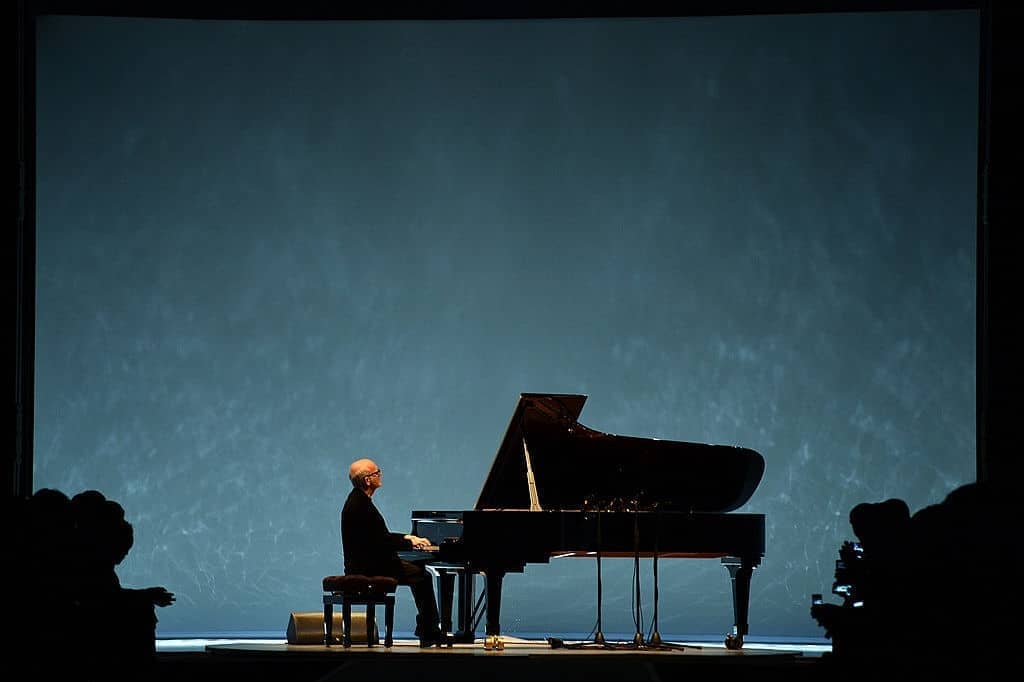Last week I went to The Hammersmith Apollo to see Ludovico Einaudi perform his new album Underwater. I hadn’t been to a concert since before the pandemic and had forgotten the thrill of live music. Recordings can never match the sensual and social experience of live performance. When listened to collectively, music unmasks the soul – solitary emotions are suddenly shared – and it connects us to something greater than ourselves.
Music is the medium I go to for comfort when life is not quite making sense
Underwater is Einaudi’s first solo piano album in two decades, becoming the fastest streamed classical music album in history. High minded critics turn their noses up, calling his music ‘elementary’. But, judging by the audience, he clearly resonates with a wide demographic. The crowd were entranced from beginning to end, there was not a fidget, a whisper or even a bored sigh (bar the repeated interruption of an unsilenced telephone). Images of sea-elements, waves and fish were projected onto a canvas – the experience was hypnotic. People’s heads gently swayed and there were moments when I wanted to stand up and dance. Whilst his compositions fall within the classical genre, it was like watching a rock star: the purists may sneer but he is one of the few contemporary classical composers who has genuine popular appeal. After every piece, the applause grew louder, with the Italian superfans chanting ‘LUDO’ in adoration. The audience was visibly moved, and I felt I was witnessing something exceptional.
As I listened, my thoughts kept returning to the people in Ukraine. How strange it felt to be sitting amongst hundreds of people, all deeply moved by the same sound when, only a three-hour flight away, music venues are being used as bomb shelters. The Ukrainian pianist, Anthony Baryshevsky was interviewed on Radio 4. Since concerts have been forbidden there, he’s volunteered to help defend his country by making camouflage nets. Sounding dejected but hopeful, he said that music will never be drowned – ‘it has a power and voice and strength’. Their culture may be under attack, but it certainly hasn’t died. People are standing in solidarity, using their voices through music. Stories of defiance include a recent video capturing a road-side concert in Kyiv: musicians play in the street as residents come out in a show of unity. Earlier this month, viral footage spread of a musician named Alex who refused to stop playing the piano in a Lviv sub-way station, whilst the air raid sirens rang out. A simple but brave act against war. Another recording showed a woman playing a final rendition of Chopin in the ruins of her house – the beautiful, white piano was one of the only items not destroyed.
Through music we’re able to express our every emotion – anger and pain, hope and joy. It lifts the spirit, restores our faith and offers consolation in the darkest times. It is the medium I go to for comfort when life is not quite making sense. In Ukraine it seems to have become a sign of strength and a symbol of resistance.






Comments